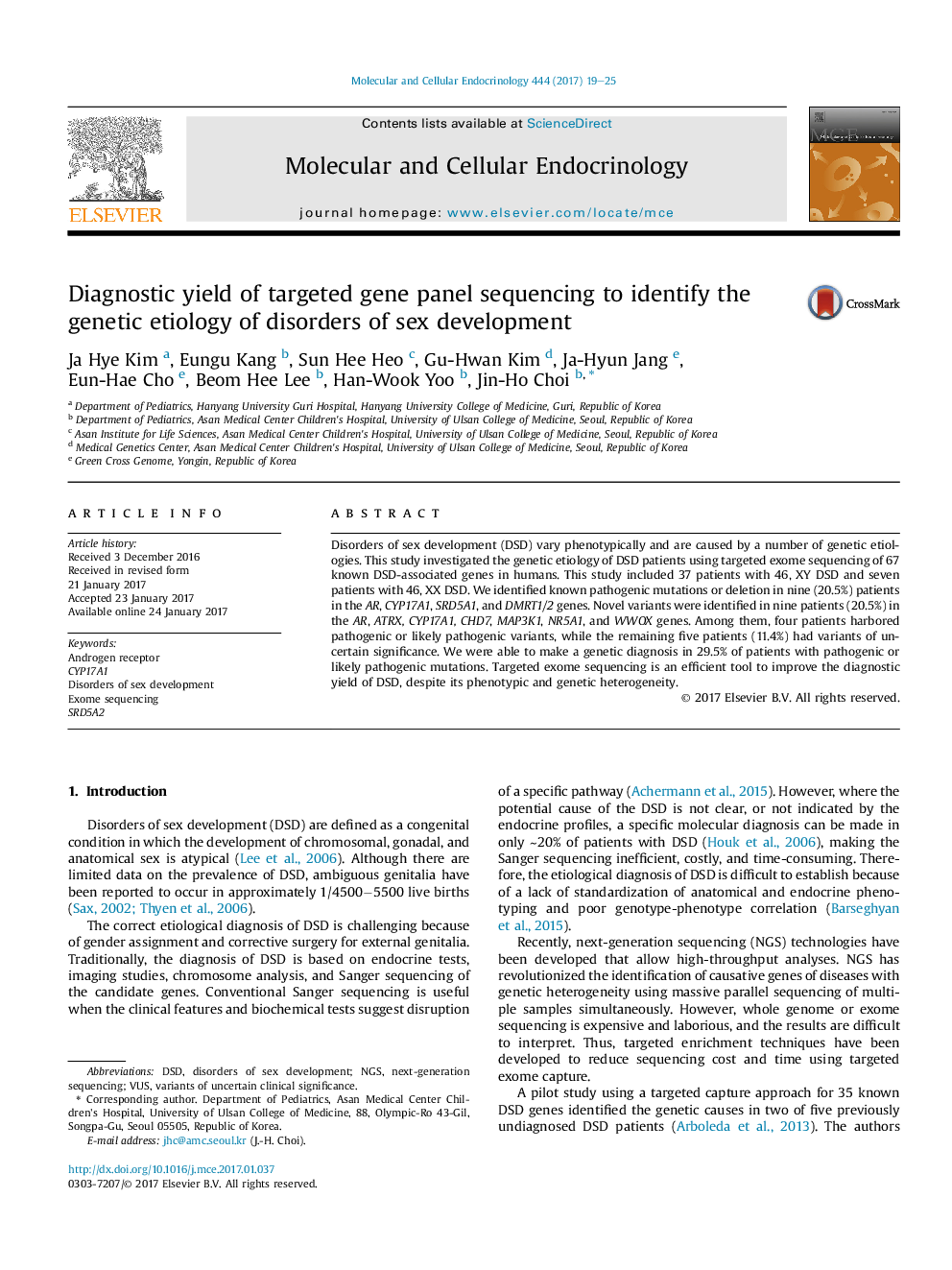| کد مقاله | کد نشریه | سال انتشار | مقاله انگلیسی | نسخه تمام متن |
|---|---|---|---|---|
| 5534180 | 1550835 | 2017 | 7 صفحه PDF | دانلود رایگان |
- This study investigated the genetic etiology of DSD using targeted exome sequencing of 67 known DSD-associated genes.
- We were able to make a genetic diagnosis in 29.5% of patients with pathogenic or likely pathogenic mutations.
- Targeted exome sequencing is an efficient tool to improve the diagnostic yield of DSD, despite genetic heterogeneity.
Disorders of sex development (DSD) vary phenotypically and are caused by a number of genetic etiologies. This study investigated the genetic etiology of DSD patients using targeted exome sequencing of 67 known DSD-associated genes in humans. This study included 37 patients with 46, XY DSD and seven patients with 46, XX DSD. We identified known pathogenic mutations or deletion in nine (20.5%) patients in the AR, CYP17A1, SRD5A1, and DMRT1/2 genes. Novel variants were identified in nine patients (20.5%) in the AR, ATRX, CYP17A1, CHD7, MAP3K1, NR5A1, and WWOX genes. Among them, four patients harbored pathogenic or likely pathogenic variants, while the remaining five patients (11.4%) had variants of uncertain significance. We were able to make a genetic diagnosis in 29.5% of patients with pathogenic or likely pathogenic mutations. Targeted exome sequencing is an efficient tool to improve the diagnostic yield of DSD, despite its phenotypic and genetic heterogeneity.
Journal: Molecular and Cellular Endocrinology - Volume 444, 15 March 2017, Pages 19-25
